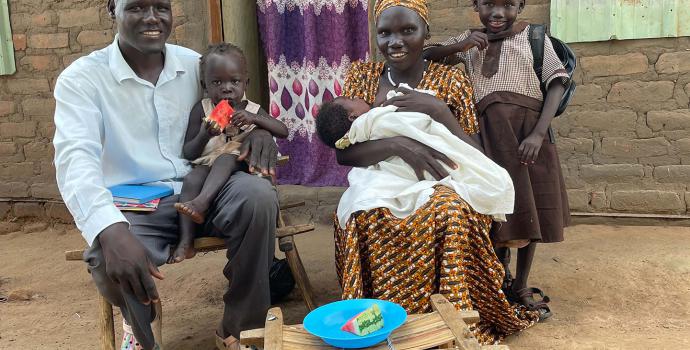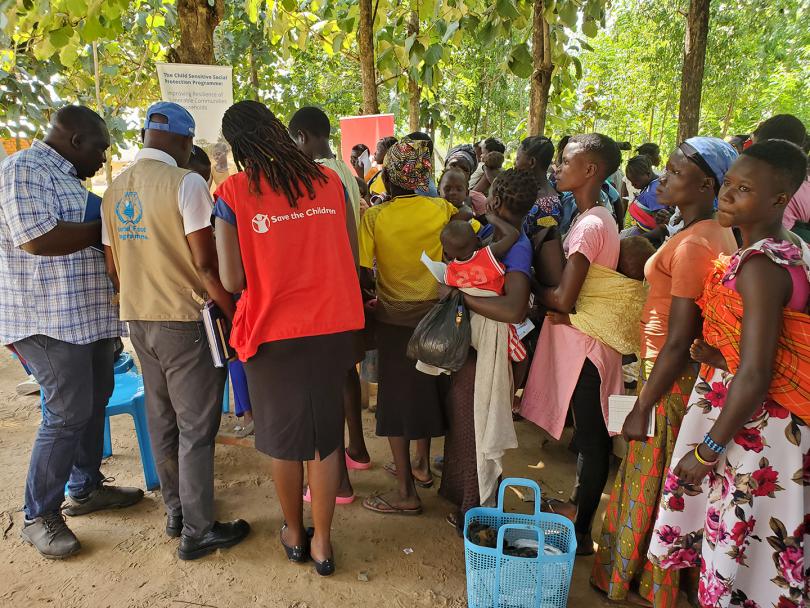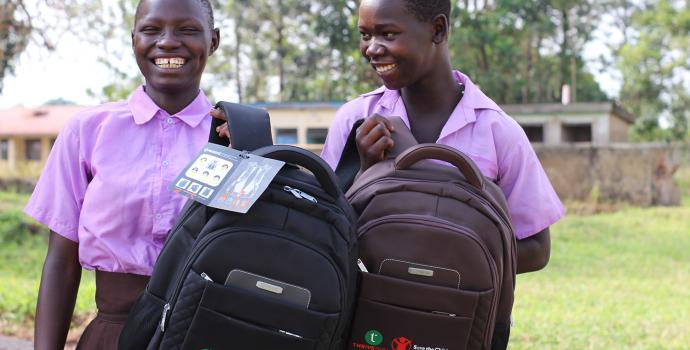CHILD SENSITIVE SOCIAL PROTECTION FOR IMPROVED NUTRITION

By: Winfred Ongom and Mercy Koku
“Everything was very hard. Financially we were struggling, and the children were always sickly, and this stressed me.” recalls Eunice. Eunice, a mother of 4 today is a lead mother in her community ‘care group’ in Omugo subcounty. She was trained in the importance and how to influence community members to attend antenatal care, immunization, male engagement for improved behavior, proper sanitation, and hygiene practices for improved health and nutrition. Care groups are community structures bringing together lead mothers/care givers in households with children under 5 in a group of 10 – 15 to improve nutrition outcomes in their communities.
These care groups, through lead mothers, are linked to Village Health Teams (VHTs) who support them with referrals for health care, nutrition education and linkage to facilities for both children and mothers. According to the VHTs and facility registers, this has seen an increase in 4th Antenatal Care in April – June from 152 mothers to 389 mothers in July – October 2023 in Omugo Health Centre IV. Lead mothers have also been able to identify sick children including the malnourished and these have been able to access health care through VHTs.
Save the Children with support from World Food Program is contributing to the social behavior change component of NutriCash, the “cash plus” component of Child Sensitive Social Protection (CSSP) reaching 13,742 mothers. The program aims to generate and sustain improvements in health and nutrition outcomes in targeted pregnant and lactating women and children under 2 in the Development Response to Displacement Impacts Project (DRDIP) Hosting Districts of West Nile.
Registered beneficiaries of NutriCash receive a monthly cash entitlement with both 70% cash at hand and 30% as mandatory savings. The cash transfers are complemented with financial literacy, Social and Behaviour Change Communication (SBCC), backyard gardening, skilling as well as referrals for care. Today, Eunice and other mothers are not only able to provide nutritious meals for their children but also able to keep them healthy through practices learnt during their care group community engagements.
Current milestones achieved in the program present the importance of child-sensitive social protection given the demographics towards breaking the child poverty cycle that affects the overall health and nutrition of communities. Save the Children together with its partners continue to engage and influence that future and existing national social protection programs are child-sensitive, so all children survive, learn, and are protected.





